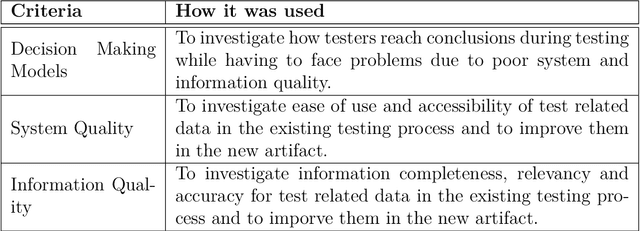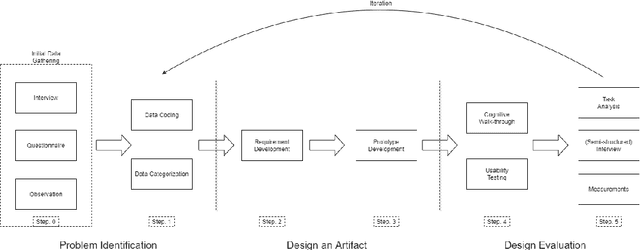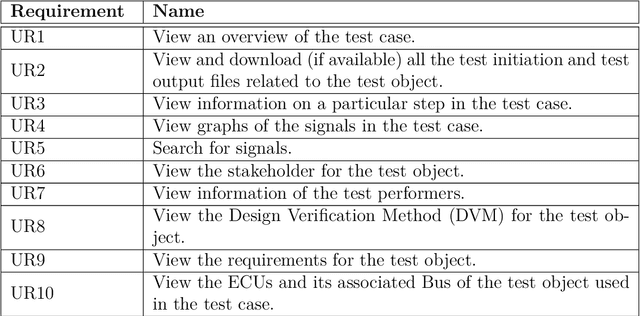Ashish M Husain
Structuring and presenting data for testing of automotive electronics to reduce effort during decision making
Apr 23, 2021



Abstract:Automotive engineering is recognized as a combination of software and mechanical engineering due to the ever-increasing number of software-based components in vehicles. Since vehicles have become more sophisticated than before to ensure robustness, testing of automotive electronics is performed in high volume, producing immense test-related data. This study investigates how unstructured and decentralized test-related data from testing of automotive electronics creates issues in decision making during the testing and analysis process of test artifacts by performing an exploratory case-study at one of the leading automotive companies, Volvo Cars. From the findings of the exploratory study, a prototype was designed to improve the data and information structure and presentation for test analysis and diagnostics for automotive electronics. The prototype's results showed that providing better data and information structure significantly increases the efficiency and reduces the workload for testers when conducting test analysis and diagnostics. Testers showed a decrease in task load for tasks related to testing due to better information structure, presentation, correctness and accessibility. Hence, the improvements aided the testers to arrive at decisions regarding root cause analysis of failed tests efficiently. The findings of this study can assist automotive companies in systematically investigating and improving the testing process of automotive electronics in regards to managing and structuring test-related data. Keywords: Testing, Automotive Electronics, Electronic Control Unit, ECU, Unstructured Data.
 Add to Chrome
Add to Chrome Add to Firefox
Add to Firefox Add to Edge
Add to Edge